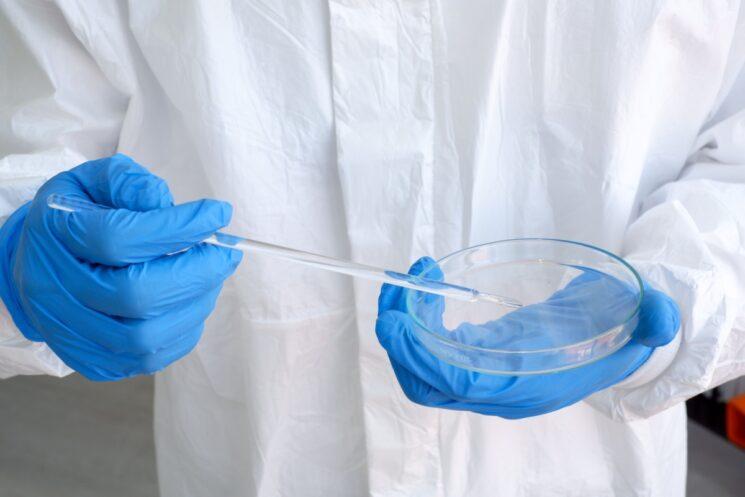Top Amniotic Membrane Products Used in Surgical and Wound Healing Applications

In recent years, amniotic membrane products have transformed the fields of surgery and wound care. Derived from the innermost layer of the placenta, these bioactive membranes are rich in growth factors, cytokines, and extracellular matrix components that promote tissue regeneration, reduce inflammation, and support healing. Today, they are widely used in orthopedic, ophthalmic, dermatologic, and podiatric applications. This article explores the top amniotic membrane products currently available and why they’re considered essential tools in regenerative medicine.
Understanding Amniotic Membrane Products
Amniotic membrane products are processed tissue grafts derived from donated human placenta. These membranes are typically cryopreserved, dehydrated, or lyophilized to retain biological integrity. The primary function of these products is to accelerate healing, reduce scar formation, and minimize the risk of infection. Their natural anti-inflammatory and anti-microbial properties make them particularly valuable in complex wound management and post-surgical recovery.
Depending on their form and processing methods, amniotic membrane products can be used as grafts, wraps, or injectables. They are frequently utilized in chronic wound therapy, diabetic foot ulcers, corneal surgeries, burn treatment, and soft tissue repair.
Top Amniotic Membrane Products in the Market
1. AmnioExcel® (Integra LifeSciences)
AmnioExcel® is a dehydrated human amniotic membrane allograft designed for chronic and acute wounds. It retains key growth factors and extracellular matrix proteins, providing a scaffold that promotes re-epithelialization. It is widely used in wound care clinics and surgical centers due to its ease of storage and handling.
Key Benefits:
-
Ready-to-use with no thawing required
-
Maintains biological activity
-
Long shelf life
2. Grafix® (Osiris Therapeutics / Smith+Nephew)
Grafix® is a cryopreserved placental membrane product that retains living cells. This product is ideal for more complex wounds, such as diabetic foot ulcers and pressure injuries, because it maintains the natural biological structure of the amniotic membrane.
Key Benefits:
-
Preserves viable cells
-
Strong anti-inflammatory effects
-
High success rate in closing chronic wounds
3. AmnioFix® (MiMedx)
AmnioFix® is a dehydrated amniotic membrane that is used extensively in orthopedic and sports medicine. It's known for modulating inflammation and reducing scar tissue formation. It’s also available in injectable forms for soft tissue injuries.
Key Benefits:
-
Minimizes inflammation
-
Available in sheet and injectable formats
-
Long shelf stability
4. Affinity® (Organogenesis)
Affinity® is a cryopreserved amniotic allograft used primarily in wound care. It contains viable cells and maintains the structural integrity of the amniotic membrane. Affinity® has shown promising results in healing non-healing ulcers and surgical wounds.
Key Benefits:
-
Maintains tissue hydration
-
Supports cell migration and angiogenesis
-
Applied in advanced wound care
5. Neox® and Clarix® (Amniox Medical)
These products are unique due to their patented CryoTek® preservation process, which preserves the amniotic tissue’s natural regenerative components. Neox® is used for wound care and surgical applications, while Clarix® is primarily used in orthopedic and ophthalmic procedures.
Key Benefits:
-
Retains native growth factors and structural proteins
-
FDA-approved for multiple indications
-
Available in various formats for tailored use
Clinical Applications of Amniotic Membrane Products
1. Wound Healing:
Chronic wounds such as diabetic foot ulcers, venous leg ulcers, and pressure sores often fail to heal due to prolonged inflammation and poor vascularization. Amniotic membrane products act as biological dressings that support granulation, reduce inflammation, and promote epithelial cell migration.
2. Ophthalmic Surgery:
Surgeons use these membranes during procedures like pterygium excision, corneal ulcer treatment, and conjunctival reconstruction. They reduce ocular inflammation and help regenerate epithelial tissue.
3. Orthopedic and Sports Medicine:
Injectable forms of amniotic tissue are used to treat tendon injuries, plantar fasciitis, and joint pain. Their regenerative capabilities reduce pain and accelerate recovery.
4. General and Reconstructive Surgery:
Amniotic grafts are utilized in plastic surgery, gynecological reconstruction, and abdominal wall repair. Their ability to minimize fibrosis and scar formation is critical in these settings.
Why Amniotic Membrane Products Matter
Amniotic membrane products stand at the intersection of biotechnology and natural healing. Unlike synthetic skin substitutes or traditional grafts, they provide a unique combination of anti-inflammatory, anti-fibrotic, and pro-regenerative properties. Their adaptability to various clinical settings—ranging from eye surgery to chronic wound treatment—makes them invaluable for modern medicine.
As clinical studies continue to support their efficacy, adoption of these products is expected to grow. Healthcare providers are increasingly recognizing their ability to reduce healing time, improve patient outcomes, and lower the risk of complications.
Final Thoughts
The evolution of amniotic membrane products marks a major advancement in surgical and wound healing therapies. From cryopreserved membranes with viable cells to dehydrated sheets for easy application, the range of products available today is impressive. Whether used in complex surgeries or chronic wound care, these biologic grafts offer powerful regenerative benefits with minimal risk.
As the medical community continues to embrace biologics, amniotic membrane products will likely play an even greater role in shaping the future of regenerative healthcare.
- Art
- Causes
- Crafts
- Dance
- Drinks
- Film
- Fitness
- Food
- الألعاب
- Gardening
- Health
- الرئيسية
- Literature
- Music
- Networking
- أخرى
- Party
- Religion
- Shopping
- Sports
- Theater
- Wellness
